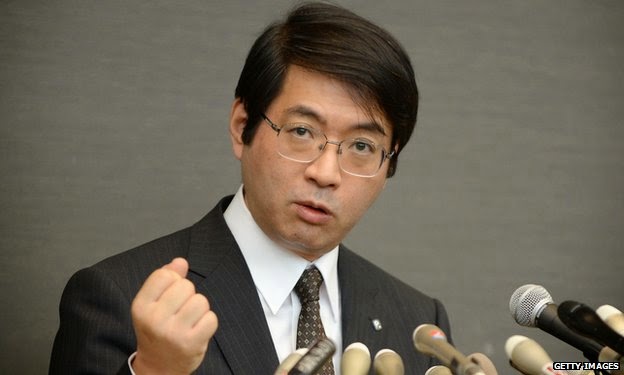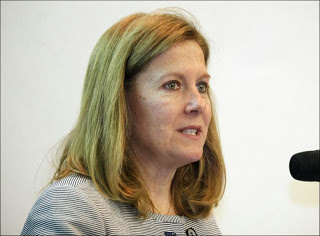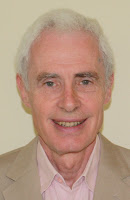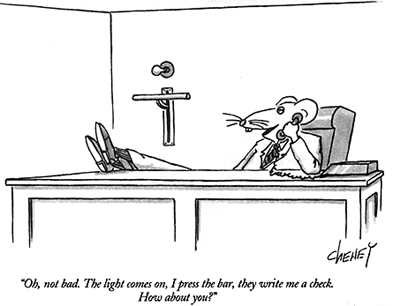We have good news from the European Court of Human Rights: The court upheld French ban on the wearing of veil in public places.

At the same time, we observe the sad state of affairs in England and other parts of the world where abuses of human rights continue and people even die because of religious privileges which allow inappropriate wearing of religious clothes. For example, in UK medical regulator, the General Medical Council persecuted for many years a whistle-blower, Dr Helen Bright, a psychiatrist after she objected to the wearing of religious uniforms by mental health workers when working with mentally ill people. Finally, the regulator struck her off medical register although she never harmed any patients.
Her research on religious uniforms was published although condemned by regulator as serious professional misconduct. Oh, well. Pity so many died needlessly and continue to do so. Especially, men who are three to four times more likely than women to commit suicides in UK. Over 80% of victims of sexual abuse by clergy are men. The system, obviously works against them.
Press release from European Court of Human Rights:
issued by the Registrar of the Court
ECHR 191 (2014)
01.07.2014
French ban on the wearing in public of clothing designed
to conceal one’s face does not breach the Convention
In today’s Grand Chamber judgment in the case of S.A.S. v. France (application no. 43835/11), which
is final1, the European Court of Human Rights held,
by a majority, that there had been no violation of Article 8 (right to respect for private and family
life) of the European Convention on Human Rights, and no violation of Article 9 (right to respect for
freedom of thought, conscience and religion);
unanimously, that there had been no violation of Article 14 (prohibition of discrimination) of the
European Convention combined with Articles 8 or 9.
The case concerned the complaint of a French national, who is a practising Muslim, that she is no
longer allowed to wear the full-face veil in public following the entry into force, on 11 April 2011, of
a law prohibiting the concealment of one’s face in public places (Law no. 2010-1192 of 11 October
2010).
The Court emphasised that respect for the conditions of “living together” was a legitimate aim for
the measure at issue and that, particularly as the State had a lot of room for manoeuvre (“a wide
margin of appreciation”) as regards this general policy question on which there were significant
differences of opinion, the ban imposed by the Law of 11 October 2010 did not breach the
Convention.
Principal facts
The applicant is a French national who was born in 1990 and lives in France. She is a devout Muslim
and in her submissions she said that she wore the burqa and niqab in accordance with her religious
faith, culture and personal convictions. As she explained, the burqa is a full-body covering including a
mesh over the face, and the niqab is a full-face veil leaving an opening only for the eyes. The
applicant also emphasised that neither her husband nor any other member of her family put
pressure on her to dress in this manner. She added that she wore the niqab in public and in private,
but not systematically. She was thus content not to wear the niqab in certain circumstances but
wished to be able to wear it when she chose to do so. Lastly, her aim was not to annoy others but to
feel at inner peace with herself.
Complaints, procedure and composition of the Court
Relying in particular on Articles 8 (right to respect for private and family life), 9 (freedom of thought,
conscience and religion) and 10 (freedom of expression), the applicant complained that she was
unable to wear the full-face veil in public. Lastly, under Article 14 (prohibition of discrimination) she
complained that the ban led to discrimination on grounds of sex, religion and ethnic origin, to the
detriment of women who, like herself, wore the full-face veil.
The application was lodged with the European Court of Human Rights on 11 April 2011.
On 28 May 2013 the Chamber to which the case had been allocated relinquished jurisdiction in
favour of the Grand Chamber. A public hearing took place before the Grand Chamber in the Human
1 Grand Chamber judgments are final (Article 44 of the Convention).
All final judgments are transmitted to the Committee of Ministers of the Council of Europe for supervision of their
execution. Further information about the execution process can be found here: www.coe.int/t/dghl/monitoring/execution
2
Rights Building, Strasbourg, on 27 November 2013. The following were authorised to intervene as
third parties (under Article 36 § 2 of the Convention) in the written procedure: the Belgian
Government, the Human Rights Centre of the University of Ghent, and the non-governmental
organisations Amnesty international, ARTICLE 19, Liberty, and Open Society Justice Initiative.
Judgment was given by the Grand Chamber of 17 judges, composed as follows:
Dean Spielmann (Luxembourg), President,
Josep Casadevall (Andorra),
Guido Raimondi (Italy),
Ineta Ziemele (Latvia),
Mark Villiger (Liechtenstein),
Boštjan M. Zupančič (Slovenia),
Elisabeth Steiner (Austria),
Khanlar Hajiyev (Azerbaijan),
Mirjana Lazarova Trajkovska (the “Former Yugoslav Republic of Macedonia”),
Ledi Bianku (Albania),
Ganna Yudkivska (Ukraine),
Angelika Nußberger (Germany),
Erik Møse (Norway),
André Potocki (France),
Paul Lemmens (Belgium),
Helena Jäderblom (Sweden),
Aleš Pejchal (the Czech Republic),
and also Erik Fribergh, Registrar.
Decision of the Court
The Government questioned the applicant’s status as “victim”, particularly as no individual measure
had been taken against her pursuant to the Law of 11 October 2010. The Court dismissed that
preliminary objection. It reiterated that individuals were entitled to argue that a law breached their
rights if they were required either to modify their conduct or risk being prosecuted, or if they were
part of a category of persons who risked being directly affected by the legislation at issue. The
present application was not therefore an actio popularis2. The Court also dismissed the
Government’s preliminary objections alleging a failure to exhaust domestic remedies and an abuse
of the right of individual application.
The Court further declared inadmissible the applicant’s complaints under Articles 3 (prohibition of
inhuman or degrading treatment) and 11 (freedom of assembly and association), taken separately
and together with Article 14 (prohibition of discrimination).
Articles 8 and 9
The Court examined the applicant’s complaints under Articles 8 and 9, with emphasis on the latter.
While personal choices as to one’s appearance related to the expression of an individual’s
personality, and thus fell within the notion of private life, the applicant had complained that she was
prevented from wearing in public places clothing that she was required to wear by her religion, thus
mainly raising an issue with regard to the freedom to manifest one’s religion or beliefs.
The Court found that there had been a “continuing interference” with the exercise of the applicant’s
rights under Articles 8 and 9, as she was confronted with a dilemma: either she complied with the
ban and thus refrained from dressing in accordance with her approach to religion, or she refused to
2 Action by which an individual challenges in abstract terms the law or legal practice of a State in the collective interest.
3
comply and would face criminal sanctions. The Court further noted that the limitation in question
was prescribed by the Law of 11 October 2010.
The Court accepted that the interference pursued two of the legitimate aims listed in Articles 8 and
9: “public safety” and the “protection of the rights and freedoms of others”.
As regards the aim of “public safety”, the Court noted that the legislature had sought, by passing the
Law in question, to satisfy the need to identify individuals in order to prevent danger for the safety
of persons and property and to combat identity fraud. It considered, however, that the ban was not
“necessary in a democratic society” in order to fulfil that aim. In the Court’s opinion, in view of its
impact on the rights of women who wished to wear the full-face veil for religious reasons, a blanket
ban on the wearing in public places of clothing designed to conceal one’s face could be regarded as
proportionate only in a context where there was a general threat to public safety. The Government
had not shown that the ban introduced by the Law of 11 October 2010 fell into such a context. As to
the women concerned, they were thus obliged to give up completely an element of their identity
that they considered important, together with their chosen manner of manifesting their religion or
beliefs, whereas the objective alluded to by the Government could be attained by a mere obligation
to show their face and to identify themselves where a risk for the safety of persons and property
was established, or where particular circumstances prompted a suspicion of identity fraud.
As to the “protection of the rights and freedoms of others”, the Government referred to the need to
ensure “respect for the minimum set of values of an open democratic society”, listing three values in
that connection: respect for gender equality, respect for human dignity and respect for the
minimum requirements of life in society (or of “living together”). While dismissing the arguments
relating to the first two of those values, the Court accepted that the barrier raised against others by
a veil concealing the face in public could undermine the notion of “living together”. In that
connection, it indicated that it took into account the State’s submission that the face played a
significant role in social interaction. The Court was also able to understand the view that individuals
might not wish to see, in places open to all, practices or attitudes which would fundamentally call
into question the possibility of open interpersonal relationships, which, by virtue of an established
consensus, formed an indispensable element of community life within the society in question. The
Court was therefore able to accept that the barrier raised against others by a veil concealing the face
was perceived by the respondent State as breaching the right of others to live in a space of
socialisation which made living together easier. It added, however, that in view of the flexibility of
the notion of “living together” and the resulting risk of abuse, it had to engage in a careful
examination of the necessity of the measure at issue.
Proceeding with that examination, the Court had to ascertain, in particular, whether the ban was
proportionate to the aim pursued. It admitted that it might appear excessive, in view of the small
number of women concerned, to opt for a blanket ban. It further noted that the ban had a
significant negative impact on the situation of women who chose to wear the full-face veil for
reasons related to their beliefs, and that many national and international human rights bodies3
regarded a blanket ban as disproportionate. The Court also stated that it was very concerned by
indications that the debate which preceded the adoption of the Law of 11 October 2010 had been
marked by certain Islamophobic remarks. It emphasised in this connection that a State which
entered into a legislative process of this kind took the risk of contributing to the consolidation of the
stereotypes which affected specific groups of people and of encouraging the expression of
intolerance, when it had a duty, on the contrary, to promote tolerance. The Court reiterated that
remarks which constituted a general, vehement attack on a religious or ethnic group were
3 Among others, the French National Advisory Commission on Human Rights (see paragraphs 18-19 of the judgment), nongovernmental
organisations such as the third-party interveners, the Parliamentary Assembly of the Council of Europe
(paragraphs 35-36) and the Commissioner for Human Rights of the Council of Europe (paragraph 37).
4
incompatible with the Convention’s underlying values of tolerance, social peace and nondiscrimination
and did not fall within the right to freedom of expression that it protected.
While the Court was aware that the disputed ban mainly affected certain Muslim women, it
nevertheless noted that there was no restriction on the freedom to wear in public any item of
clothing which did not have the effect of concealing the face and that the ban was not expressly
based on the religious connotation of the clothing in question but solely on the fact that it concealed
the face. In addition, the sanctions provided for by the Law were among the lightest that could have
been envisaged: a fine of 150 euros maximum and the possible obligation to follow a citizenship
course, in addition to or instead of the fine. Furthermore, as the question whether or not it should
be permitted to wear the full-face veil in public places constituted a choice of society, France had a
wide margin of appreciation. In such circumstances, the Court had a duty to exercise a degree of
restraint in its review of Convention compliance, since such review led it to assess a balance that had
been struck by means of a democratic process within the society in question. In the Court’s view, the
lack of common ground between the member States of the Council of Europe as to the question of
the wearing of the full-face veil in public places4 supported its finding that the State had a wide
margin of appreciation. The ban complained of could therefore be regarded as proportionate to the
aim pursued, namely the preservation of the conditions of “living together”. The Court held that
there had not been a violation of either Article 8 or Article 9 of the Convention.
Other Articles
The ban imposed by the Law of 11 October 2010 admittedly had specific negative effects on the
situation of Muslim women who, for religious reasons, wished to wear the full-face veil in public.
However, that measure had an objective and reasonable justification for the reasons previously
indicated. There had not therefore been a violation of Article 14 taken together with Articles 8 or 9.
The Court was also of the view that no separate issue arose under Article 10 of the Convention,
taken separately or together with Article 14.
Separate opinion
Judges Nuβberger and Jäderblom expressed a joint dissenting opinion, which is annexed to the
judgment.
The judgment is available in English and French.
This press release is a document produced by the Registry. It does not bind the Court. Decisions, judgments
and further information about the Court can be found on www.echr.coe.int. To receive the Court’s press
releases, please subscribe here: www.echr.coe.int/RSS/en or follow us on Twitter @ECHRpress.
Press contacts
[email protected] | tel: +33 3 90 21 42 08
Céline Menu-Lange (tel: + 33 3 3 90 21 58 77)
Tracey Turner-Tretz (tel: + 33 3 88 41 35 30)
Nina Salomon (tel: + 33 3 90 21 49 79)
Denis Lambert (tel: + 33 3 90 21 41 09)
The European Court of Human Rights was set up in Strasbourg by the Council of Europe Member States in 1959 to deal
with alleged violations of the 1950 European Convention on Human Rights.
4 From a strictly normative standpoint, except for Belgium, no member State of the Council of Europe other than France
has, to date, opted for a ban on the wearing of the full-face veil in public. This question, nevertheless, is or has been a
subject of debate in a number of European States (see §§ 40-52 of the judgment).


 Photo from BBC. click on the photograph to read the article by Jonathan Webb, Science correspondent
Photo from BBC. click on the photograph to read the article by Jonathan Webb, Science correspondent

 The action against alleged racial/ethnic discrimination in the examination for the general practitioners' membership exam of The Royal College of General Practitioners filed by BAPIO (British Association of Physicians of Indian Origin) ended with a loss and a considerate advise from the judge that the RCGPs could address the differences in the pass rates between those who are white UK graduates and non-white non- UK graduates. Neither RCGPs nor GMC said anything against not talking about it.
The action against alleged racial/ethnic discrimination in the examination for the general practitioners' membership exam of The Royal College of General Practitioners filed by BAPIO (British Association of Physicians of Indian Origin) ended with a loss and a considerate advise from the judge that the RCGPs could address the differences in the pass rates between those who are white UK graduates and non-white non- UK graduates. Neither RCGPs nor GMC said anything against not talking about it.  A bit of a shock on New York underground train when passengers noticed a rat taking the train with them (
A bit of a shock on New York underground train when passengers noticed a rat taking the train with them (











